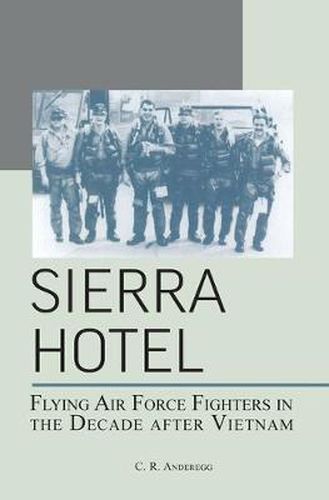Readings Newsletter
Become a Readings Member to make your shopping experience even easier.
Sign in or sign up for free!
You’re not far away from qualifying for FREE standard shipping within Australia
You’ve qualified for FREE standard shipping within Australia
The cart is loading…






This title is printed to order. This book may have been self-published. If so, we cannot guarantee the quality of the content. In the main most books will have gone through the editing process however some may not. We therefore suggest that you be aware of this before ordering this book. If in doubt check either the author or publisher’s details as we are unable to accept any returns unless they are faulty. Please contact us if you have any questions.
Originally published in 2001. From the foreword: In February 1999, only a few weeks before the U.S. Air Force spearheaded NATO’s Allied Force air campaign against Serbia, Col. C. R. Anderegg, USAF (Ret.), visited the commander of the U.S. Air Forces in Europe. Colonel Anderegg had known Gen. John Jumper since they had served together as jet forward air controllers in Southeast Asia nearly thirty years earlier. From the vantage point of 1999, they looked back to the day in February 1970, when they first controlled a laser-guided bomb strike. In this book Anderegg takes us from glimmers of hope like that one through other major improvements in the Air Force that came between the Vietnam War and the Gulf War. Always central in Anderegg’s account of those changes are the people who made them. This is a very personal book by an officer who participated in the transformation he describes so vividly. Much of his story revolves around the Fighter Weapons School at Nellis Air Force Base (AFB), Nevada, where he served two tours as an instructor pilot specializing in guided munitions. But he also takes a look at other Fighter Mafia outposts in the Pentagon and elsewhere. Readers meet young Mafiosi like John Jumper, Larry Keith, Ron Keys, Joe Bob Phillips, Earl Henderson, Moody Suter, John Corder, Jim Brown, John Vickery, Jack Lefforge, Jack Ihle, Stump Bowen, Dave Dellwardt, Tommy Dyches, John Madden, and Dick Myers. As one might expect to find in a fighter pilot story, there is a lot of fun along the way. For a distilled example, consult the appendix on Jeremiah Weed (replete with instructions for drinking afterburners ). Colonel Anderegg’s book is likely to please anyone with an interest in fighter pilots and how they molded today’s Air Force.
$9.00 standard shipping within Australia
FREE standard shipping within Australia for orders over $100.00
Express & International shipping calculated at checkout
This title is printed to order. This book may have been self-published. If so, we cannot guarantee the quality of the content. In the main most books will have gone through the editing process however some may not. We therefore suggest that you be aware of this before ordering this book. If in doubt check either the author or publisher’s details as we are unable to accept any returns unless they are faulty. Please contact us if you have any questions.
Originally published in 2001. From the foreword: In February 1999, only a few weeks before the U.S. Air Force spearheaded NATO’s Allied Force air campaign against Serbia, Col. C. R. Anderegg, USAF (Ret.), visited the commander of the U.S. Air Forces in Europe. Colonel Anderegg had known Gen. John Jumper since they had served together as jet forward air controllers in Southeast Asia nearly thirty years earlier. From the vantage point of 1999, they looked back to the day in February 1970, when they first controlled a laser-guided bomb strike. In this book Anderegg takes us from glimmers of hope like that one through other major improvements in the Air Force that came between the Vietnam War and the Gulf War. Always central in Anderegg’s account of those changes are the people who made them. This is a very personal book by an officer who participated in the transformation he describes so vividly. Much of his story revolves around the Fighter Weapons School at Nellis Air Force Base (AFB), Nevada, where he served two tours as an instructor pilot specializing in guided munitions. But he also takes a look at other Fighter Mafia outposts in the Pentagon and elsewhere. Readers meet young Mafiosi like John Jumper, Larry Keith, Ron Keys, Joe Bob Phillips, Earl Henderson, Moody Suter, John Corder, Jim Brown, John Vickery, Jack Lefforge, Jack Ihle, Stump Bowen, Dave Dellwardt, Tommy Dyches, John Madden, and Dick Myers. As one might expect to find in a fighter pilot story, there is a lot of fun along the way. For a distilled example, consult the appendix on Jeremiah Weed (replete with instructions for drinking afterburners ). Colonel Anderegg’s book is likely to please anyone with an interest in fighter pilots and how they molded today’s Air Force.